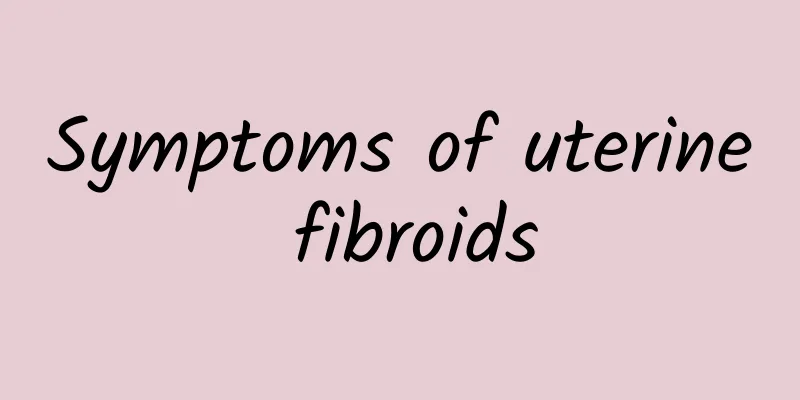Is corpus luteum cyst common in early pregnancy? Will it cause miscarriage?

|
Early pregnancy corpus luteum cysts are common during pregnancy and generally do not cause miscarriage, but they need to be monitored and treated according to the size of the cyst and specific symptoms. Generally, most corpus luteum cysts are normal physiological phenomena and will not threaten pregnancy, but if the cyst continues to grow or ruptures, it may have a certain impact on the health of pregnant women. 1. Causes of Corpus Luteum Cyst in Early Pregnancy During early pregnancy, corpus luteum cysts occur because the corpus luteum formed after ovulation continues to produce progesterone to support pregnancy. Some women may develop cysts because the corpus luteum cannot completely degenerate or is overactive. Genetic factors: Women with a family history of ovarian cysts are more likely to develop corpus luteum cysts. Physiological factors: Fluctuations in progesterone levels are associated with ovarian dysfunction and may lead to the formation of corpus luteum cysts. External factors: Stress, overwork, or the use of hormonal medications may also be triggers. 2. The possibility of miscarriage caused by corpus luteum cyst in early pregnancy In most cases, corpus luteum cysts are physiological cysts with little impact on the fetus and mother. However, the following situations require vigilance: Cyst rupture: Oversized cysts may rupture, causing acute abdominal pain and abdominal bleeding, which may threaten the safety of the mother and fetus in severe cases. Cyst torsion: When the corpus luteum cyst is large and its activity increases, it may cause ovarian torsion, which in turn affects the corpus luteum function and indirectly affects the stability of pregnancy. Hormone imbalance: Impaired corpus luteum function may affect progesterone secretion and thus affect embryonic development. 3. Treatment of corpus luteum cyst in early pregnancy Drug monitoring: For most asymptomatic small corpus luteum cysts, no treatment is usually required and regular ultrasound monitoring is sufficient. Surgical treatment: If the cyst is found to be larger than 5 cm in diameter, continues to grow, or is accompanied by obvious symptoms such as abdominal pain, rupture and bleeding, laparoscopic removal may be considered to ensure the safety of pregnancy. Daily care: focus on a reasonable diet, avoid heavy physical labor, maintain a stable mood, and reduce stimulating activities and medication. Early pregnancy corpus luteum cysts generally have little impact on pregnancy, but they need to be closely monitored, especially when accompanied by symptoms or the cyst is large, you should seek medical attention immediately. Through standardized prenatal examinations and professional doctor guidance, the treatment of most early pregnancy corpus luteum cysts is safe and effective. |
<<: What causes uterine cysts?
>>: How long does it take to get pregnant again after a hydatidiform mole?
Recommend
To prevent uterine fibroids, eat more iron-rich foods
Preventing the occurrence of uterine fibroids is ...
Women should pay more attention to the precautions before painless abortion
At present, the incidence of painless abortion is...
What are the causes of irregular menstruation in women? Is it normal for menstruation to last for eight or nine days?
Menstrual irregularity is a gynecological disease...
What medicine to take to prevent miscarriage
What medicine should be taken to prevent miscarri...
What are the main symptoms of cervical erosion?
Among gynecological diseases, cervical erosion is...
Which hospital treats uterine effusion quickly?
Everyone knows about uterine effusion. Uterine ef...
How long does it take to treat fallopian tube tuberculosis?
Treatment of tubal tuberculosis usually takes 6 t...
How to provide rehabilitation care for patients with amenorrhea
Amenorrhea is a common symptom in gynecological d...
What are the symptoms of unclean abortion? Women should pay attention to the following points after abortion
Nowadays, many women have had abortions. Although...
What are the harmful effects of abortion? There are 4 major harms
The abortion rate is very high now, but most peop...
Michelle Chen taps the gallbladder meridian to slim down her legs with 5 secret techniques
[Key points]: Previously, the version of Little D...
What are uterine fibroids? Can uterine fibroids cause vaginal bleeding?
Uterine fibroids most often occur in the female r...
What is the abnormal smell of leucorrhea?
Abnormal smell of leucorrhea may be caused by dis...
How to Eat Reasonably for Patients with Uterine Effusion
We all know that diet is very important after we ...
The main causes of pelvic inflammatory disease
Pelvic inflammatory disease is one of the more co...









